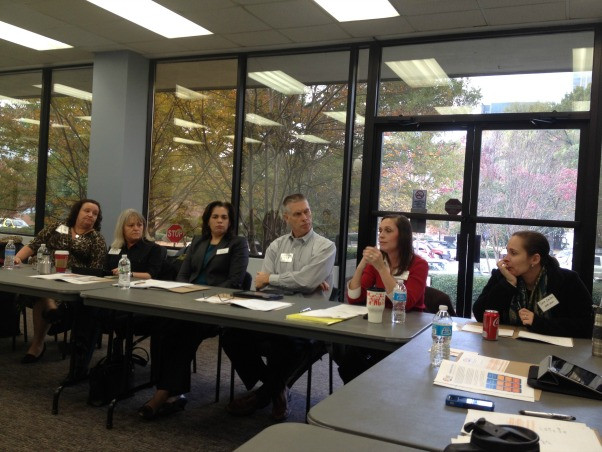On November 12, representatives from Harris County (Houston) and Travis County (Austin), TX, and Richmond, VA, visited Mecklenburg County (Charlotte), NC, to learn about their new Frequent User Systems Engagement (FUSE) initiative, called MeckFUSE. All three visiting communities are in the exciting time of planning for initiatives that use supportive housing to break the cycle between homelessness and incarceration.
- Richmond, VA – CSH received grant funding from Capital One in 2012 to support Richmond in the development of a FUSE model. In July of 2013, the city’s Criminal Justice Services Division learned that they were the recipient of HUD funds to permanently house 15 homeless offenders off the court’s mental health docket, and to further assist with rapid rehousing 25 additional offenders.
- Houston – Harris County received a $5 million grant from the Department of State Health Services (DSHS) to serve frequent users of the criminal justice system in 2013. The County is still in the contract development phase of the project but plans to serve 200 frequent detainees who are also homeless and diagnosed with a mental health disorder.
- Austin – Travis County received an $300,000 award from the Bureau of Justice Assistance Justice Reinvestment Initiative (JRI) to provide permanent supportive housing and services to 22 frequent users of the Travis County Jail who are chronically homeless and mentally ill. Long-term housing subsidies are provided by the Housing Authority of Travis County, and a private foundation is funding the evaluation by Urban Institute.
While in Mecklenburg County, the group met with several stakeholders instrumental in implementing the MeckFUSE program. The lively and engaging discussion included topics ranging from lessons learned from prior service delivery models, stakeholder engagement around planning and delivery, data matching, outreach and in-reach procedures using a data-driven approach to targeting, housing subsidy creation, ongoing program monitoring, and communications and public relations. The group was treated to a presentation by the evaluator of the MeckFUSE initiative from UNC-Charlotte as well.
A visit to the MeckFUSE service provider, Urban Ministry Center, provided for a rich discussion including case managers of the successes and challenges of working with FUSE tenants. The day closed with a visit to a MeckFUSE tenant, James, in his new apartment, as well as to a mission-driven landlord who is currently remodeling up to 10 units for the FUSE program.
CSH will continue to work with the visiting communities as they refine their models. For more information on the MeckFUSE program, visit the county’s web site.

